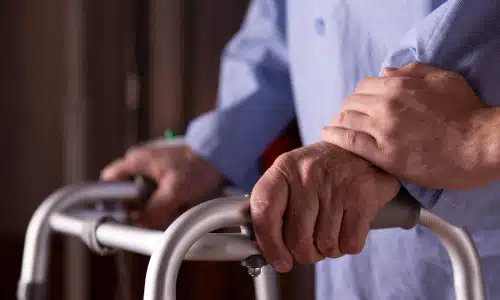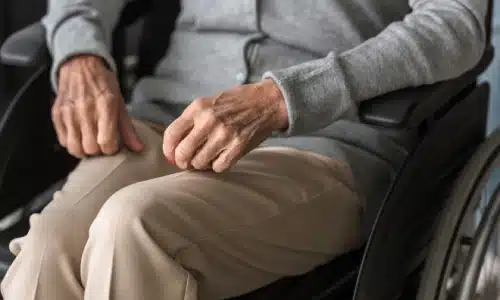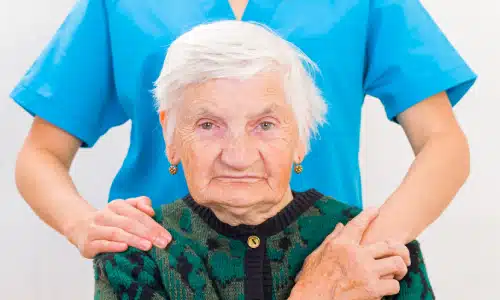Tampa Nursing Home Abuse Lawyer
When abuse or neglect occurs in a nursing home, families often feel helpless, grappling with shock and uncertainty. A Tampa nursing home abuse lawyer can step in as a powerful ally, guiding families through the process of holding negligent facilities accountable.

These attorneys work to secure compensation for damages—covering medical expenses, emotional trauma, and more—while ensuring the victim’s safety moving forward. Beyond the legal benefits, the stakes are deeply personal: the emotional toll of seeing a loved one mistreated and the financial burden of addressing the aftermath can be overwhelming.
Legal help from experts at Darrigo & Diaz Attorneys at Law offers not just a path to justice, but also peace of mind and protection for those who can no longer protect themselves.
Why You Need a Tampa Nursing Home Abuse Attorney
Nursing home abuse is a heartbreaking violation of trust that can leave victims and their families feeling powerless and uncertain about what to do next. When a loved one is harmed in a facility meant to provide care and safety, the desire for justice and accountability is natural—but pursuing it can be overwhelming.
A Tampa nursing home abuse attorney is essential to help you through this challenging time. Here are the key reasons why you need legal representation in such cases.
Holding the Nursing Home Accountable
A primary reason to hire an attorney is to ensure the nursing home and its staff face consequences for their actions or negligence. Abuse can range from physical and emotional harm to financial exploitation or neglect, and proving these wrongs requires a solid case.
An experienced Tampa nursing home abuse attorney will:
- Collect evidence like medical records, staff logs, and incident reports.
- Interview witnesses, such as employees or other residents, to support your claim.
- Build a compelling case to show how the nursing home failed in its duty of care.
Legal action not only seeks justice for your loved one but also helps protect others by exposing and addressing abusive practices.
Seeking Compensation for Damages
The effects of nursing home abuse can be devastating, leading to physical injuries, emotional trauma, and financial burdens. An attorney will fight to secure compensation for:
- Medical costs: Expenses for treating injuries, illnesses, or conditions caused by abuse or neglect.
- Pain and suffering: Damages for the physical and emotional distress your loved one endured.
- Relocation expenses: Costs to move your loved one to a safer facility.
- Punitive damages: Additional penalties in cases of severe misconduct to punish the facility and deter future abuse.
This compensation can help address both immediate needs and long-term recovery, ensuring your family isn’t left to bear the financial weight alone.
Navigating the Complexity of the Legal Process
Nursing home abuse cases in Tampa are legally complex, involving Florida’s specific elder care laws, medical evidence, and regulatory standards. Proving abuse often requires:
- Analyzing detailed medical records to link harm to the facility’s actions.
- Consulting experts, like doctors or elder care specialists, for testimony.
- Understanding state and federal nursing home regulations to identify violations.
Providing Emotional Support and Guidance
The emotional toll of nursing home abuse can be immense, leaving families grappling with guilt, anger, and grief. Beyond legal expertise, an attorney offers:
- Clear, compassionate communication to keep you informed and confident.
- Relief from the legal burden, allowing you to focus on your loved one’s well-being.
- Connections to resources like counseling to help you cope.
Acting Quickly to Meet Legal Deadlines
Time is critical in nursing home abuse cases. Delays can weaken your case as evidence fades.
An attorney will:
- File paperwork and meet deadlines to preserve your rights.
- Act fast to gather fresh evidence and witness statements.
- Ensure your case moves forward efficiently.
Understanding Nursing Home Abuse in Tampa

Tampa, nestled in the heart of Florida, is experiencing a significant demographic shift with its growing senior population. Florida’s aging demographics reflect a broader trend: the state is home to one of the largest elderly populations in the U.S., with Tampa contributing to this increase.
As a result, the number of nursing homes and long-term care facilities has risen to meet the demand. However, this growth has a darker side—an alarming rise in reported cases of nursing home abuse and neglect.
Signs of Nursing Home Abuse and Neglect
Detecting nursing home abuse or neglect in Tampa requires vigilance, as the signs can vary widely and may not always be obvious. Here’s what to look for:
- Unexplained bruises, cuts, or welts: Marks that can’t be reasonably explained by everyday activities.
- Fractures or broken bones: Injuries suggesting excessive force or falls that went unreported.
- Restraint marks: Redness or bruising around wrists or ankles from improper use of restraints.
- Fearfulness or anxiety: A sudden shift toward being overly cautious or scared, especially around staff.
- Depression: Persistent sadness or lack of interest in previously enjoyed activities.
- Sudden withdrawal from social interaction: Avoiding conversations or isolating themselves unexpectedly.
- Missing money or valuables: Cash or personal items disappearing without explanation.
- Unauthorized credit card use: Charges that the resident didn’t make or approve.
- Altered wills or financial documents: Unexpected changes benefiting someone else.
- Bedsores (pressure ulcers): Painful sores from prolonged immobility, indicating lack of repositioning.
- Malnutrition or dehydration: Weight loss, weakness, or dry skin from inadequate food or water.
- Poor hygiene: Dirty clothing, unwashed hair, or foul odors signaling lack of basic care.
These signs can be subtle, and abusers may attempt to conceal them. Victims might not speak up due to fear, confusion, or physical inability.
If you notice anything suspicious—whether it’s a physical mark, a behavioral change, or a financial irregularity—don’t dismiss it. Investigate further to ensure your loved one’s well-being.
The Long-Term Impact of Nursing Home Abuse on Victims

The effects of nursing home abuse extend far beyond the immediate harm. For elderly residents, the physical, emotional, and financial consequences can last for years—or even a lifetime. Understanding the lasting consequences of nursing home abuse can help families recognize the urgency of intervening and seeking justice.
Physical Decline
Victims of abuse often suffer from worsened health outcomes. Injuries such as fractures, bedsores, and untreated infections can significantly reduce mobility and lead to permanent disabilities. Malnutrition and dehydration may also compromise the immune system, making recovery harder. In some cases, abuse accelerates existing medical conditions, hastening the decline in overall health.
Emotional and Psychological Trauma
The emotional trauma in elderly abuse cases is often underestimated. Victims may experience depression, anxiety, or PTSD after enduring mistreatment by caregivers they trusted. Some develop intense fear or paranoia, making it difficult to accept help or reintegrate into a safe environment. The psychological toll can lead to social withdrawal and a decreased will to live.
Loss of Trust and Social Engagement
Nursing home residents often rely on staff for their most basic needs. When abuse occurs, it erodes trust in caregivers and institutions, leaving the victim isolated and reluctant to engage with others. Many withdraw from social activities or become fearful around other residents and staff, reducing their quality of life and sense of community.
Financial Hardship
The financial effects of nursing home abuse can be severe. Families may incur high medical expenses to treat injuries caused by neglect. Victims of financial exploitation may also lose substantial savings or assets. In some cases, loved ones must relocate the resident to a new, often more expensive, facility—adding to the economic burden.
Steps to Take if You Suspect Nursing Home Abuse
If you suspect that your loved one is experiencing abuse or neglect in a nursing home, taking immediate action is critical. Here are the key steps to follow to ensure their safety and build a strong case if legal action is needed.
Recognize the Warning Signs
Before taking action, confirm your concerns by looking for the common signs of abuse we have listed above. These can usually be classified into three categories:
- Physical indicators: Unexplained bruises, bedsores, sudden weight loss, poor hygiene.
- Behavioral changes: Increased anxiety, fearfulness, withdrawal from social interactions.
- Environmental red flags: Understaffing, unsanitary conditions, lack of proper medical care.
Document Everything
Proper documentation can strengthen your case if legal action is required. Keep detailed records of:
- Dates and times of suspicious incidents.
- Photos of injuries, poor living conditions, or signs of neglect.
- Statements from your loved one or other residents.
- Copies of medical reports or financial records showing irregularities.
Speak With Nursing Home Staff
Address your concerns with nursing home management or staff. Ask direct questions, such as:
- How did this injury occur?
- When was my loved one last seen by a doctor?
- What measures are in place to prevent neglect or abuse?
Be sure to document their responses. If they are dismissive, defensive, or uncooperative, this may indicate a deeper issue.
Report the Abuse to Authorities
If you believe your loved one is in danger, report the abuse immediately to the appropriate agencies:
- Florida Adult Protective Services (APS): Call 1-800-96-ABUSE (1-800-962-2873).
- Agency for Health Care Administration (AHCA): Handles nursing home violations in Florida.
- Tampa law enforcement: If the abuse involves immediate harm or criminal activity, contact the police.
These agencies can conduct investigations and take action against negligent facilities.
Remove Your Loved One if Necessary
If the nursing home is unwilling to address the issue or the abuse is ongoing, consider relocating your loved one to a safer facility. Work with medical professionals and family members to ensure a smooth transition.
Consult a Tampa Nursing Home Negligence Lawyer
Taking legal action may be necessary to hold the nursing home accountable and secure compensation for damages. Taking legal action may be necessary to hold the nursing home accountable and secure compensation for damages.
Legal Process for Nursing Home Abuse Cases in Tampa
Florida has robust laws to protect nursing home residents, detailed in Chapter 400 of the Florida Statutes. This chapter spells out residents’ rights—such as the right to dignity, respect, and proper care—and the obligations of facilities to uphold these standards.
When nursing homes fail to comply, these laws provide a legal foundation for holding them accountable.
Steps in the Process
The legal journey typically follows these steps:
- Consultation: An initial meeting with a lawyer to review your case and assess its merits.
- Evidence Gathering: Collecting critical proof, such as medical records, photos, and witness statements.
- Filing a Lawsuit: Submitting a formal complaint against the nursing home or responsible parties.
- Settlement or Trial: Negotiating a resolution out of court or, if needed, presenting the case in trial for a judge or jury to decide.
Types of Compensation
Victims and their families may be eligible for several forms of compensation, including:
- Medical costs: Expenses for treating injuries or conditions caused by abuse or neglect.
- Pain and suffering: Damages for the physical pain and emotional distress endured.
- Punitive damages: Additional awards in severe cases to punish the facility and deter future misconduct.
Choosing a Tampa Nursing Home Abuse Lawyer Near Me
Finding the right nursing home abuse attorney can make all the difference. Here’s what to prioritize:
Experience and Specialization
Opt for a lawyer who specializes in nursing home abuse, not just general personal injury. These cases involve unique challenges—like interpreting medical records or navigating elder care regulations—that require specific expertise.
Track Record of Success
Seek an attorney with a history of winning settlements or verdicts in nursing home abuse cases. A strong track record signals their ability to deliver results and handle the complexities of your claim.
Local Expertise
A Tampa-based attorney brings an edge: familiarity with local nursing homes, Florida’s legal landscape, and regional regulations. This local knowledge can strengthen your case and streamline the process.
Client-Centered Approach
Nursing home abuse cases are deeply personal. Choose a Tampa personal injury lawyer who offers compassion and clear communication, ensuring you feel supported and informed throughout this sensitive ordeal.
How Long Do I Have to File a Nursing Home Abuse Case
The statute of limitations is the maximum period allowed by law to initiate legal proceedings. In most nursing home abuse cases, state law allows two years from the date the abuse or neglect was discovered (or should have been discovered) to file a claim.
For nursing home abuse, the statute of limitations is governed by Florida Statute 400.0236, which specifically addresses violations of nursing home residents’ rights. If you fail to file a lawsuit within this time frame, you may lose your right to pursue a claim, no matter how strong your case might be.
Exceptions and Extensions
While the general rule is two years, certain circumstances can extend this period:
- Delayed Discovery: If the abuse was actively concealed or could not have been reasonably discovered earlier, the statute of limitations may be extended.
- Incapacity: If the victim is mentally incapacitated and unable to communicate the abuse, the time limit might be paused until they regain capacity or a guardian is appointed.
- Wrongful Death: If the abuse or neglect leads to the resident’s death, a different statute of limitations applies. In Florida, wrongful death claims must generally be filed within two years of the date of death, as per Florida Statute 95.11(4)(d).
Why Acting Quickly Matters
Beyond meeting legal deadlines, there are practical reasons to act swiftly:
- Preserving Evidence: Key evidence—such as medical records, staff logs, or witness statements—can be lost or altered over time. Acting quickly helps ensure this information is preserved.
- Witness Memory: Memories fade, and staff turnover is common in nursing homes. Prompt action increases the likelihood of obtaining accurate testimony.
- Protecting Your Loved One: If abuse is ongoing, filing a claim can prompt immediate intervention to safeguard your loved one from further harm.
Contact Our Tampa Nursing Home Abuse Law Firm Today
If you suspect your loved one is suffering from abuse or neglect, don’t hesitate—reach out to a Tampa nursing home abuse lawyer today. Acting swiftly is a step toward justice, holding wrongdoers accountable, and protecting your loved one from further harm.
At Darrigo & Diaz Attorneys at Law, we offer a free, no-obligation consultation to discuss your concerns. This confidential meeting allows us to evaluate your case, answer your questions, and outline your options—all at no cost or risk to you.
Take that first step with confidence, knowing you’re not alone.
Nursing home abuse is a betrayal of trust, but you have the power to respond. With the right nursing home abuse lawyer by your side, you can seek justice and ensure your loved one receives the care they deserve.
Contact us now at (813) 774-3341 to schedule your free consultation and begin the journey toward accountability and healing.
Tampa Nursing Home Abuse FAQ
What should I do if I suspect nursing home neglect in Tampa, FL?
If you suspect neglect or abuse in a Tampa nursing home, take the following steps:
- Document Everything – Take notes on injuries, poor conditions, and staff behavior. Photograph any visible signs of neglect.
- Talk to Staff – Ask for explanations regarding any injuries or concerning incidents.
- Report the Abuse – Contact Florida Adult Protective Services at 1-800-96-ABUSE or local law enforcement if immediate danger is present.
- Seek Medical Attention – Ensure your loved one receives proper medical care.
- Consult a Nursing Home Abuse Lawyer in Tampa – Legal action may be necessary to protect your loved one’s rights and hold the facility accountable.
What is the statute of limitations on nursing home abuse in Florida?
You generally have two years from the date the abuse or neglect was discovered (or should have been discovered) to file a lawsuit.
However, certain exceptions may extend the time limit, such as:
- Fraud or concealment: If the facility intentionally hid the abuse, the statute may be extended.
- Mental incapacity: If the victim is mentally incapacitated, the filing deadline may be paused.
- Wrongful death cases: If the abuse led to death, the statute of limitations is typically two years from the date of death under Florida Statute 95.11(4)(d).
Because time-sensitive evidence can weaken over time, it’s best to contact a lawyer as soon as possible.
Who do you report nursing home abuse to in Florida?
You can report nursing home abuse to the following agencies:
- Adult Protective Services (APS): Call 1-800-96-ABUSE (1-800-962-2873) or report online through the Department of Children and Families (DCF) website.
- Agency for Health Care Administration (AHCA): Handles complaints regarding nursing home violations and licensing issues.
- Local Law Enforcement: If the abuse involves physical harm, sexual assault, or any other criminal act, contact the police immediately.
- Long-Term Care Ombudsman Program: Advocates for residents’ rights and can help resolve complaints.
How do you prove nursing home abuse?
Proving nursing home abuse requires strong evidence, including:
- Medical Records: Documentation of unexplained injuries, malnutrition, dehydration, or other signs of neglect.
- Photographs & Videos: Visual proof of bruises, bedsores, poor living conditions, or other signs of mistreatment.
- Witness Statements: Testimonies from staff, residents, or family members who have observed neglect or abuse.
- Financial Records: Evidence of unauthorized withdrawals, forged signatures, or suspicious transactions (in financial abuse cases).
- Expert Testimony: Doctors or elder care specialists can assess injuries and confirm if they resulted from abuse or neglect.
Darrigo & Diaz Attorneys at Law Are Here to Help
If you suspect a loved one is suffering from nursing home abuse in Tampa, don’t wait to take action. Contact Darrigo & Diaz Attorneys at Law today at (813) 774-3341 for a confidential consultation. Our compassionate legal team is ready to help you protect your family and pursue the justice your loved one deserves.
